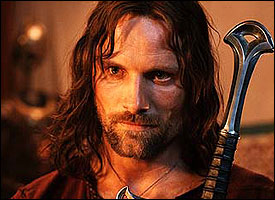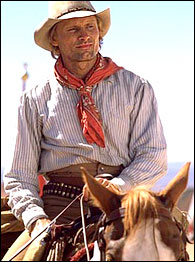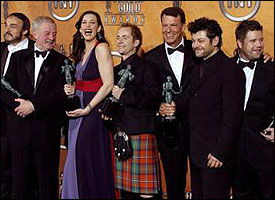| ESPN.com: Page3 |
 | |
| Despite the many movie credits to his name, Viggo Mortensen may be best known as Aragorn in the "Lord of the Rings" trilogy. |
 | |
| The actor fit right into his latest role as cowboy Frank Hopkins in "Hidalgo." |
 | |
| The blockbuster trilogy's final instalment, "The Return of the King," was a big winner a the SAG Awards. Could this be a sign for future Oscar gold? |